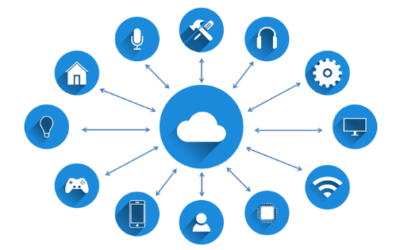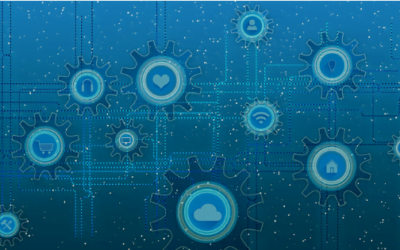If you are just discovering the topic and world of cybersecurity, how it may affect you as an individual and your business, here are some facts and statistics you’ll want to know to get started on protecting yourself and your company. Cybersecurity is the protection of computer systems and networks from malicious attacks. This includes theft of or damage of electronic data which could impair not only individuals but also different institutions.
In this modern world, all sectors of our society such as government, military, corporate, financial, and medical collect, process, and store huge amounts of data on computers and other digital devices. This means that all of us are vulnerable to cyber-attacks, even small and medium sized businesses who may not think they are at risk.
Cyber attacks are dangerous to businesses due to the hacker’s attempt to expose, alter, disable, destroy, steal, or gain unauthorized access to a certain group of data that a business holds. The types and interests of the attack may vary depending on the business. Most of the time, it’s aimed towards the disruption or financial gain of the attackers. It could also be politically motivated or even just for the purpose of causing panic or fear. In simplest terms, this security threat is about someone gaining unauthorized access to sensitive information which mostly leads to negative consequences.
This causes great threats on any organization’s integrity and privacy. The unpleasant thing is that this only continues to grow exponentially. In fact, A Clark School study at the University of Maryland identified that There is a hacker attack every 39 seconds – basically affecting one in three Americans every year.
Moreover, there are 3 elements of Cyber Security: People, Processes & Technology. People means us as users should be well informed about the latest risks and solutions of a cyber threat and must realize our role in proactively preventing it from happening. As cyber threats are constantly evolving, our processes need to as well in order to curb the chance of a threat. Last is Technology which is the main tool in utilizing cyber risks. Common types include Malware (computer viruses, spyware, Trojan horses, and keyloggers), Ransomware (Malware that locks or encrypts data until a ransom is paid), Phishing Attacks (obtaining sensitive information through a disguised email, phone call, or text message) and Social engineering (The psychological manipulation of individuals to obtain confidential information which often overlaps with phishing).
Immediate effect of a cyber-security attack is a loss of trust from both existing and potential investors, consumers, or people directly related to any kind of sector. It is so immediate that share prices fall 7.27% on average right after a breach. The total costs can add up to over $1 trillion dollars which was the amount it reached in 2018 alone.
These types of threats are not only for large organizations. It’s very widespread and rampant that 43% of cyber attacks target small businesses. Of which, 64% of companies have experienced web-based attacks. 62% experienced phishing & social engineering attacks. 59% of companies experienced malicious code and botnets and 51% experienced denial of service attacks.
If you still think that a cyber security attack would not happen to you, here are some cyber security statistics you need to know: Half a billion personal records were stolen in 2018. There are approximately 3,809,448 records stolen from breaches every day, 158,727 per hour, 2,645 per minute and 44 every second of every day.
Despite the alarming numbers of cyber attacks per day, more than 77% of organizations still do not have any response plan on dealing with cyber security incidents. Although approximately $6 trillion is expected to be spent globally on cyber security by 2021, organizations would still have to look at aligning their budget and must now also prioritize the intricacies that comes with our modern society. In today’s connected world, everyone from an individual to organizational level is absolutely essential in keeping an organization safe.
It should be noted however that the most difficult challenge in cyber security is its constantly evolving nature especially when it comes to hackers, data loss, privacy, risk management, and changing cybersecurity strategies. That is why focusing on most crucial system components and trying to defend against known treats can now be considered to be insufficient. Threats tend to advance and change more rapidly than organizations can keep up with.
The internet has done wonders for development in our daily lives and businesses, however, it comes with a downside. Since there are huge amounts of information being transmitted, all users must each promote their own personal safety to avoid any security risks. Early awareness and prevention are necessary in order to protect both the individuals and organizations as a whole. And since security threats are constantly evolving, making sure your business has a security system has also become essential. A security system that has multiple layers of protection spread across computers, devices, networks and programs are proven to be more effective to curb threats.
Cyber security attacks will continue to be a hot topic and security is an area we should all be diligent about if we would like to avoid any economic, repetitional or regulatory costs. To protect your business, you need to stay up to date on the cyber security facts, best practices, and facts about the internet, as disaster recovery more often than not costs more than the proper protection we should have in place. Since we are becoming more and more technologically reliant, it is understandably vital that we should do all that we can in order to protect the system that keeps our society and daily lives going.
If your business does not have a system in place already or are wondering if you need an improvement, our team of experts will be sure to make sure your company has the right systems in place to avoid any types of attacks. Contact us to set up your consultation to see how we may assist you!




0 Comments